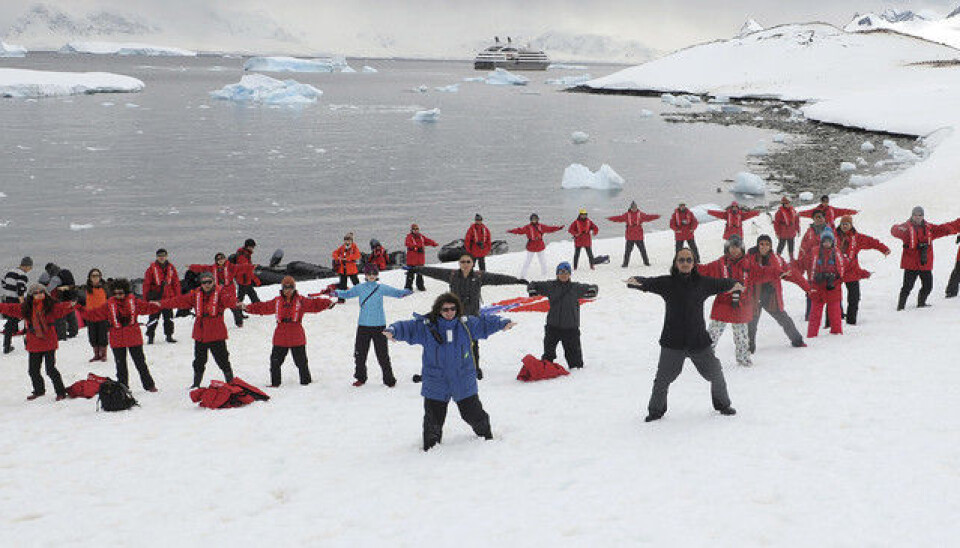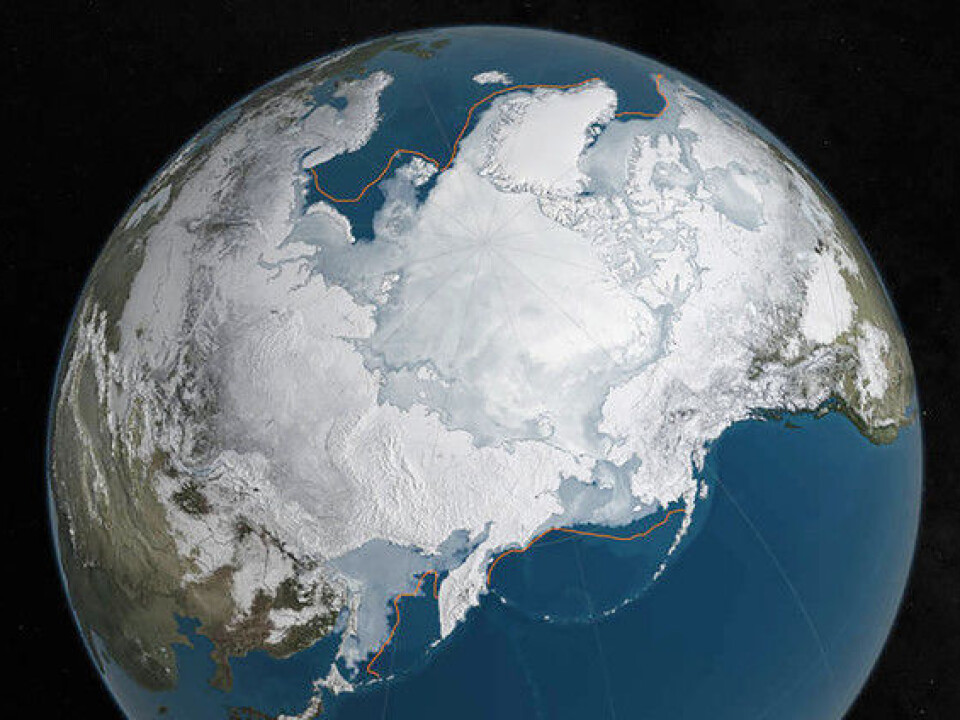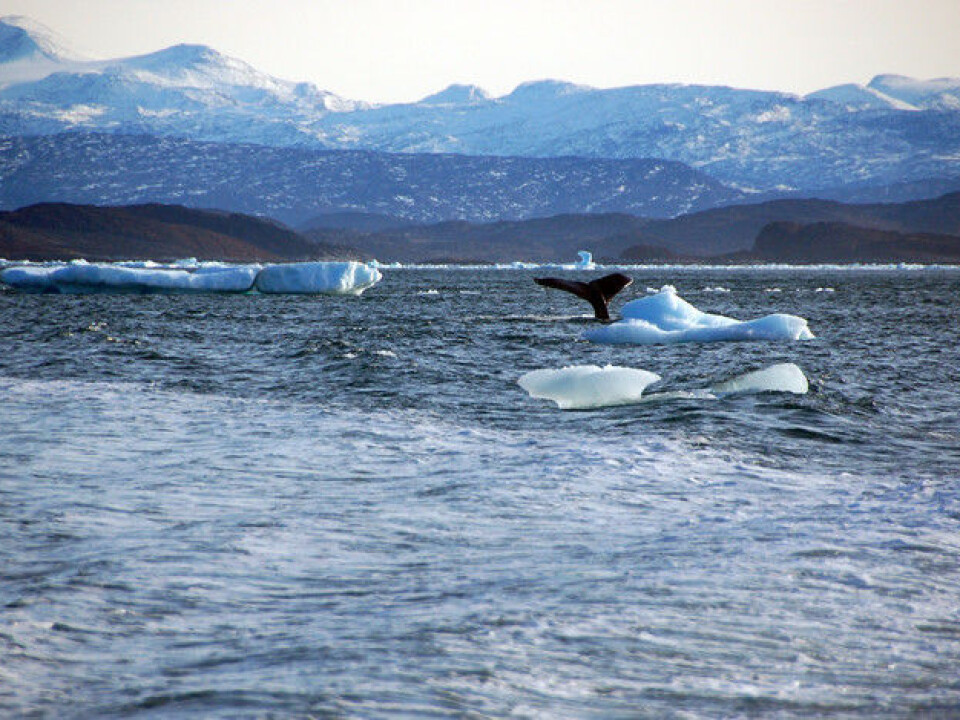
Why is China so quiet in negotiations about fisheries in the central Arctic Ocean?
OPINION: Non-Arctic states such as China must be involved in regulatory efforts to achieve sustainable management of fisheries in the Arctic Ocean.
China has become more active in global governance issues. Its involvement in new regulations about the changing environment of the Arctic is no exception.
Arctic ice is melting at an alarming rate; according to a recent report from NASA, the Arctic has lost almost 95% of its older ice cover since 1984. Due to this loss and other impacts of climate change, the marine ecosystems of the Arctic Ocean are also evolving.
It’s now widely recognised that fish stocks in the Arctic Ocean may occur both within areas under current fisheries’ jurisdiction of the coastal states, and in the high seas portion of the central Arctic Ocean.
It would be a disaster for fish stocks if there’s no governance regime when fishing starts in the central Arctic Ocean.
Arctic 5+5 process

The coastal states of the Arctic Ocean, the so-called Arctic Five – United States, Russia, Canada, Norway and Denmark – believe they have a stewardship role in the conservation and management of Arctic marine living resources.
But freedom of fishing in the high seas is enshrined by the United Nations Convention on the Law of Sea, which is applicable to all the world’s oceans. So, to achieve sustainable management of fisheries in the high seas portion of the central Arctic Ocean, non-Arctic states, especially high sea fishing states, such as China and the European Union, must also be involved in any regulatory efforts.
On July 16 2015, the Arctic Five adopted the Declaration Concerning the Prevention of Unregulated High Sea Fishing in the Central Arctic Ocean, or the Oslo Declaration. It acknowledges the interest of other states in preventing unregulated high seas fisheries in the central Arctic Ocean and starts a so-called “broader process” of developing fisheries management measures for the central Arctic Ocean with non-Arctic states.
As a result, China, the EU, Iceland, Japan and the Republic of Korea – the five leading non-Arctic fishing states – were invited to help develop a regional fisheries organisation or arrangement for the central Arctic Ocean.

Known as the Arctic 5+5, the group held its first meeting on fisheries in Washington in December 2015. A series of follow-up meetings has been held since in Washington (again), Iqualuit in Canada and Torshavn, in the Faroe Islands.
During the last meeting in Faroe Islands, all delegations reaffirmed their commitment to prevent unregulated commercial high seas fishing in the central Arctic Ocean. They also committed to promoting the conservation and sustainable use of living marine resources, and to safeguard healthy marine ecosystems in the area.
But a formal agreement has not yet been reached; another meeting will be held in Iceland next year.
A tale of two poles
As the world’s largest fishing nation, China now has global interests from West Africa to Antarctica.
Until 2015, the country was openly opposed to the establishment of marine protected areas in Antarctica at the Annual Meetings of Commission for Conservation of Antarctic Marine Living Resources (CCAMLR), partly due to its krill fishing interest in the Southern Ocean.
But it has, so far, been very quiet in the central Arctic Ocean fisheries negotiations. Why is China’s behaviour in the two poles so dramatically different?
A weak Arctic connection
China is undoubtedly interested in the Arctic, especially the potential for developing resources in the region. The country started building its first research station in Iceland to study the northern lights recently, sign-posting its possible Arctic ambitions.
But the fact remains that China’s capacity to participate in Arctic affairs is still weak. It has just one Arctic research station (Yellow River) in the Norwegian archipelago of Svalbard, compared to four research stations in Antarctica (a fifth is on its way).
Only recently, in the summer of 2012, did the Chinese Icebreaker Xue Long sail across the Northern Sea route along Russian Coastal line. Chinese scientists entered into Russian Exclusive Economic Zone of the Arctic Ocean for the first time in August 2016, while conducting their first joint research with Russian colleagues.
China may simply not be confident enough to provide proposals based on its own scientific data in the fisheries negotiation.
Part of the conversation
No fishing is happening in the central Arctic Ocean yet. The current negotiations are merely about emerging interest, which probably means less influence from the industry on the Chinese delegation.
The fisheries industry usually plays a vital role in China’s policy process regarding fisheries. The Chinese delegation to the annual meeting of the CCAMLR and other regional fisheries management organisations, for instance, are full of fisheries officials, scientists and industry representatives.
Indeed, China’s participation in the central Arctic Ocean fisheries negotiations seems to be more symbolic, an attempt to not be left behind. At this point at any rate, it seems China is generally satisfied with the fact of being invited to attend the meetings.
Gaining trust
China has been working hard to gain the trust of the five Arctic states to facilitate collaboration in resources development in the region.
China finally entered into the “Arctic Club” in 2013 by becoming an observer of the Arctic Council, the most important regional forum for discussion of Arctic issues.
The criteria set by the Arctic Council to determine observer status include the recognition of Arctic states’ sovereignty, sovereign rights and jurisdiction in the Arctic; and the recognition that an extensive legal framework applies to the Arctic Ocean including, notably, the Law of the Sea. Observers must recognise that this framework provides a solid foundation for responsible management of the ocean.
Its accession to the group suggests China has decided to embrace rather than fundamentally challenge the current regime in the Arctic.
Its quiet voice in the central Arctic Ocean fisheries negotiations is another example of the country showcasing its willingness to be a collaborative partner in the region.
China is likely to continue on this path in the foreseeable future, with strong interests and growing capacity in the fast-changing Arctic region.
![]()
This article was originally published on The Conversation. Read the original article.

Nengye Liu does not work for, consult, own shares in or receive funding from any company or organization that would benefit from this article, and has disclosed no relevant affiliations beyond the academic appointment above.




